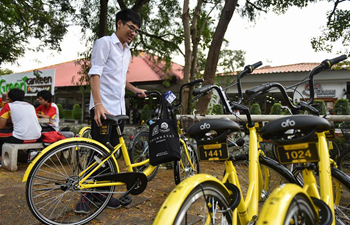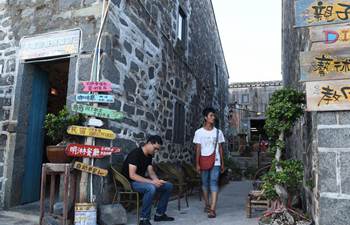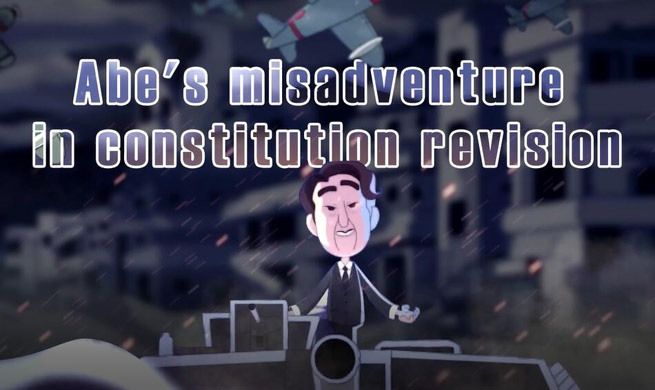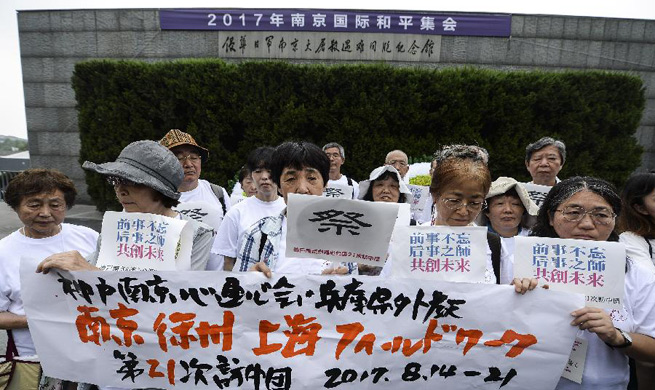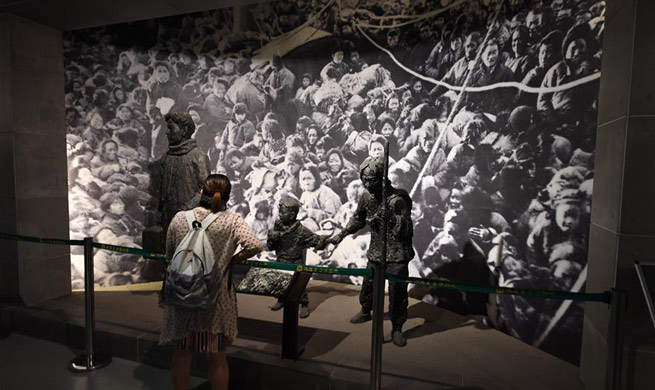LONDON, Aug. 15 (Xinhua) -- The British government on Tuesday released a position paper in order to strike a temporary deal with the European Union (EU) to retain the main benefits of the customs union for an interim period after Brexit.
Britain's decision to end its EU membership will mean its departure from what is the world's biggest customs union, with a population of more than 500 million.
The customs union enables the current 28 member states of the EU to import or export goods throughout a border-free community without paying any trade tariffs. It also enables other countries with trading deals with the EU to export and import goods to all EU member states.
Under Article 28 of the EU Treaty, all trade in goods between EU countries must be free of customs duties, with member states required to apply a common customs tariff for goods imported from outside the regional bloc.
The advantage is that goods imported into an EU member country can be moved freely within the EU borders without the need for any further customs checks.
Britain leaving the EU without agreeing new trading arrangements would mean more paperwork and border checks for British goods exported to the EU, business leaders fear.
One of the complications is what happens between Ireland, a republic, and Northern Ireland, a part of the United Kingdom.
Although there has been free movement of goods and people since the 1920s between the two sides on the island of Ireland, when Britain leaves the EU, the border with the Irish Republic will become the only EU land border within Britain.
Ireland would remain within the customs union, and Britain, unless a deal is struck, would be outside of the customs union.
Business leaders in Britain have expressed fears that Britain leaving the customs union will harm British industry.
Josh Hardie, deputy director-general of the Confederation of British Industry (CBI), has stressed the importance of customs arrangements for businesses.
"Business wants to see as frictionless a customs system as possible, with a strong emphasis on digital systems that make it easier to trade," he said.
"But to secure frictionless trade, negotiations on regulation, tariff and non-tariff barriers will have to take place. All efforts should be made to deliver a single-step transition, so that businesses don't have to adapt twice," he said.
Under the proposals put forward Tuesday by British Brexit Secretary David Davis, he wants Britain to have a transitional deal, lasting up to two years, to enable customs arrangements to continue more or less as they are now.
Davis wants Britain to be able to sign trade deals with other countries, such as China and the U.S., during any agreed transitional period.
But those global trade deals would not start until the transitional period comes to an end.
Under EU customs union and single market rules, member states are not allowed to negotiate separate trade deals with non-EU countries.




